Abstract
Eighteen mother-child dyads were referred for psychological help because of the children's oppositional behaviors and the mothers' aversive reactions to the children. All dyads were from low income families in which the mothers reported themselves to be relatively isolated from social contact in their communities. Following a baseline phase, the mothers were trained to modify their children's oppositional behaviors through time out and a point system. Fourteen of the dyads were observed in three phases of the study: baseline, parent training or treatment, and a 1-year follow-up period. In Phases one and two, child opposition and mother aversive reactions to the children were measured twice weekly by professional observers in the home settings. During Phase three (follow-up), these observations occurred twice per month. In addition, the mothers' self-reported contacts with people in their communities were obtained immediately after each observation. Results showed significant improvement in the mother-child problems during the parent training or treatment phase. However, the problems returned to baseline levels of occurrence during the follow-up phase. The self-report findings indicated that number of mother contacts with friends was an inverse predictor of these problems. On days marked by high proportions of friend contacts, mother-child problems were lower in frequency than on days marked by low proportions of friend contacts. These correlational findings were taken to suggest that a mother's extra-family social contacts may influence her child interaction patterns at home. This possibility was discussed as a factor in the long-term success of parent training as a treatment strategy.
Full text
PDF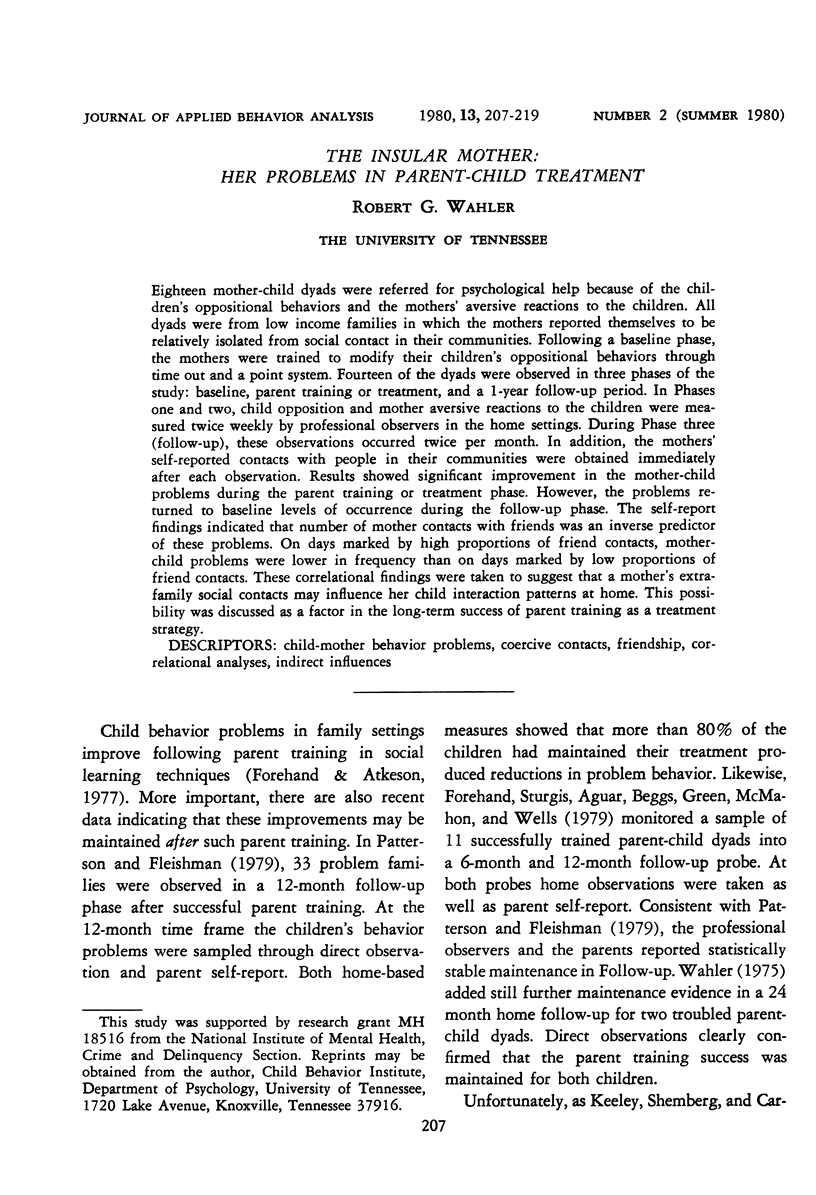
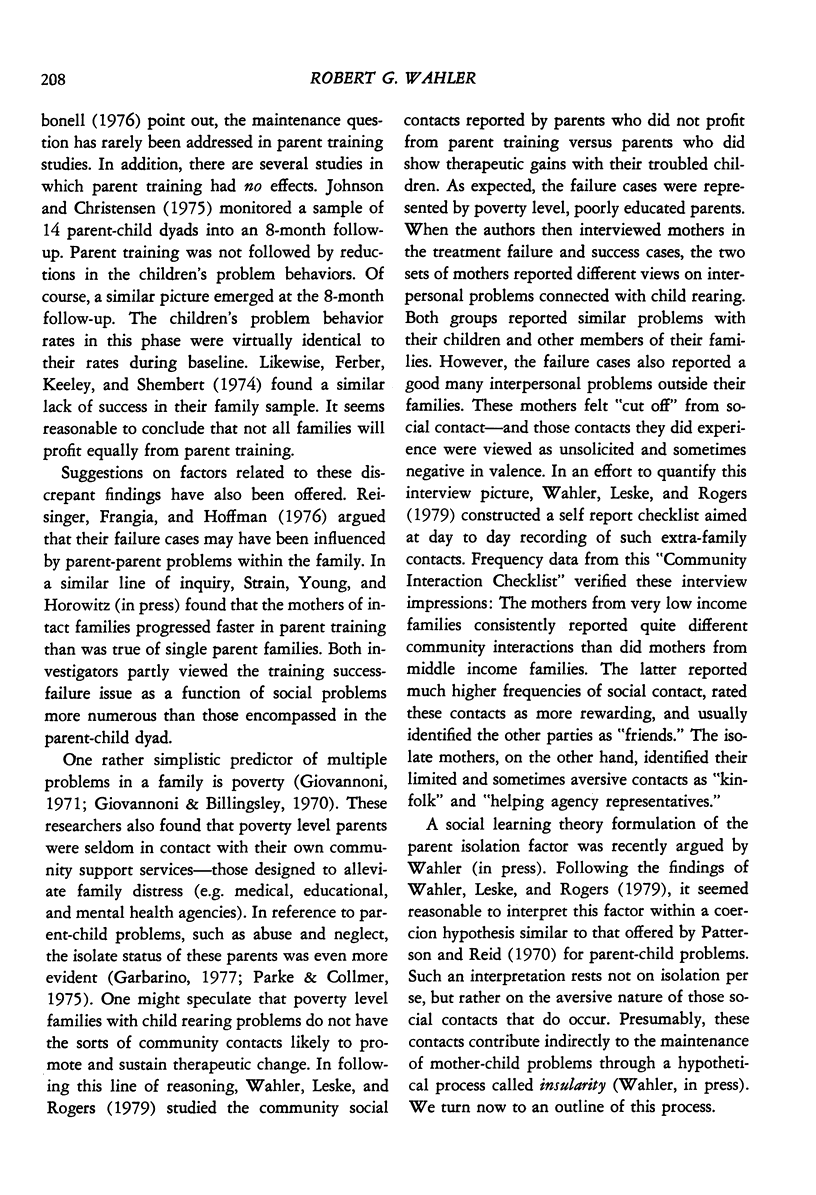
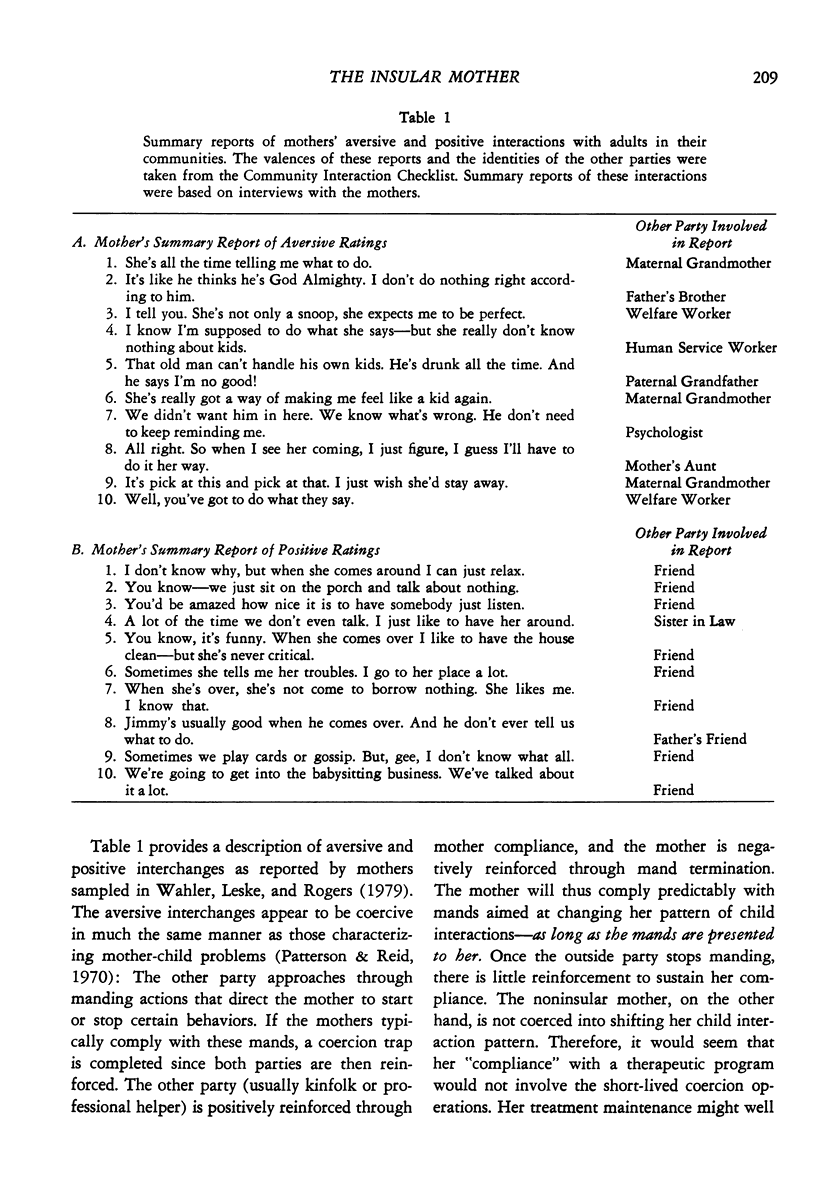
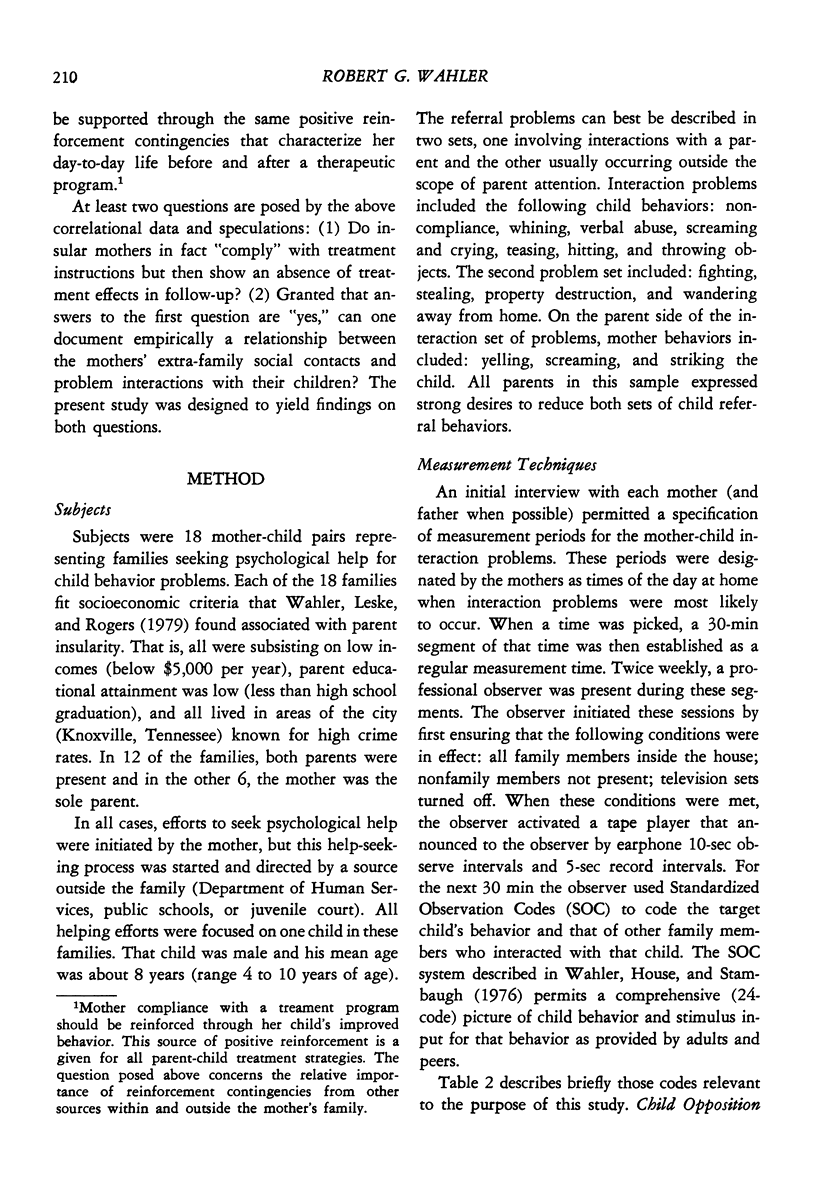
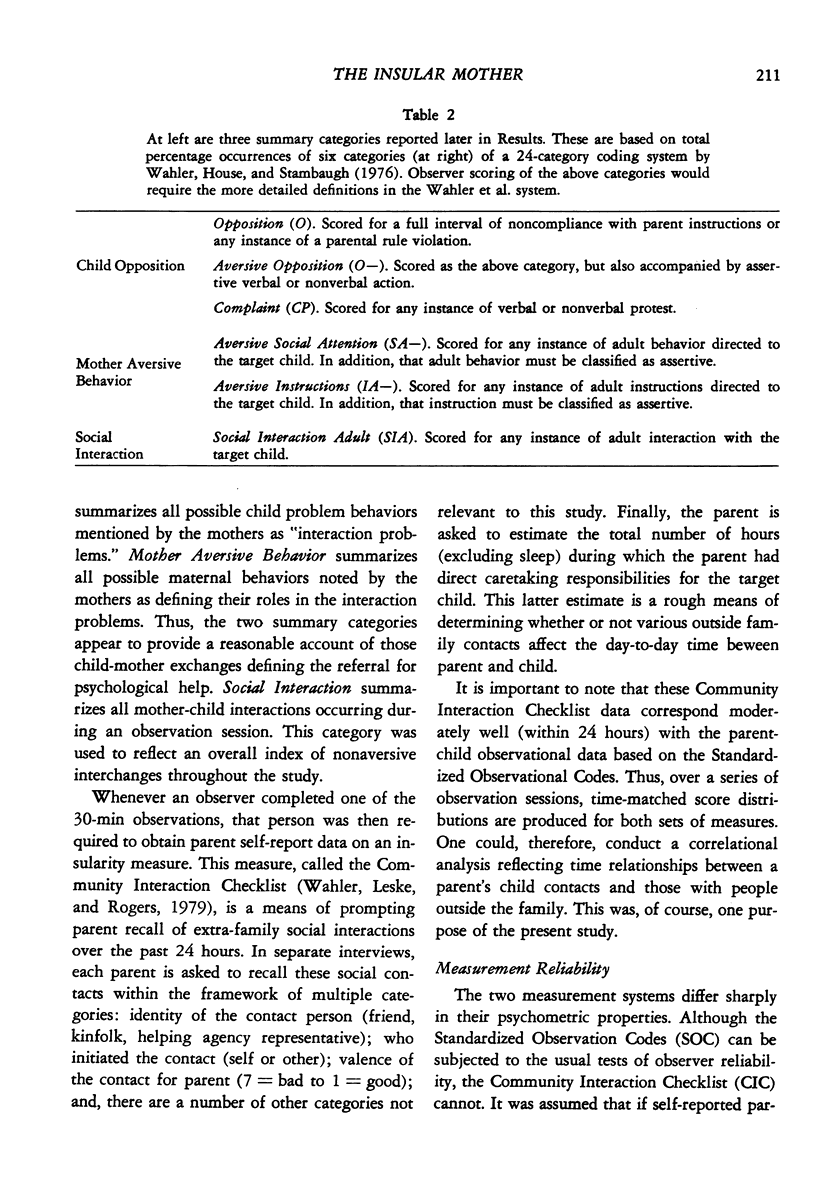
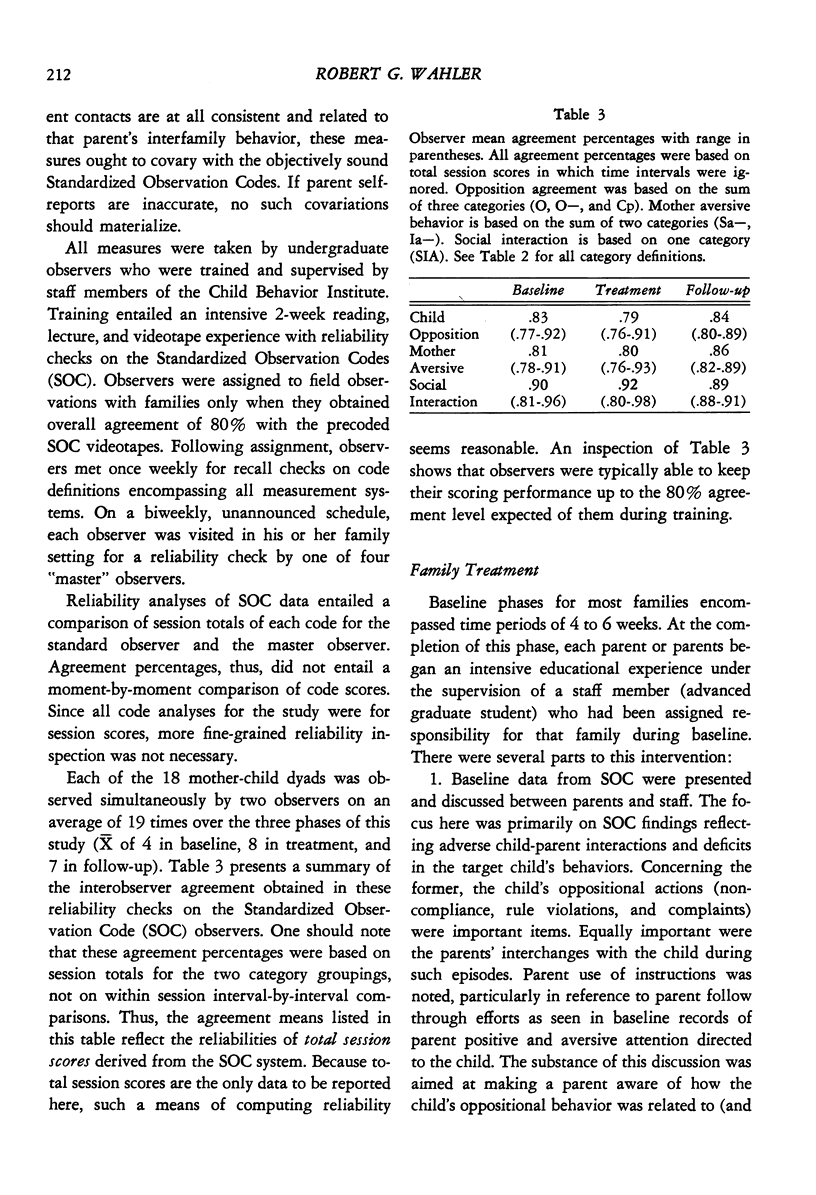
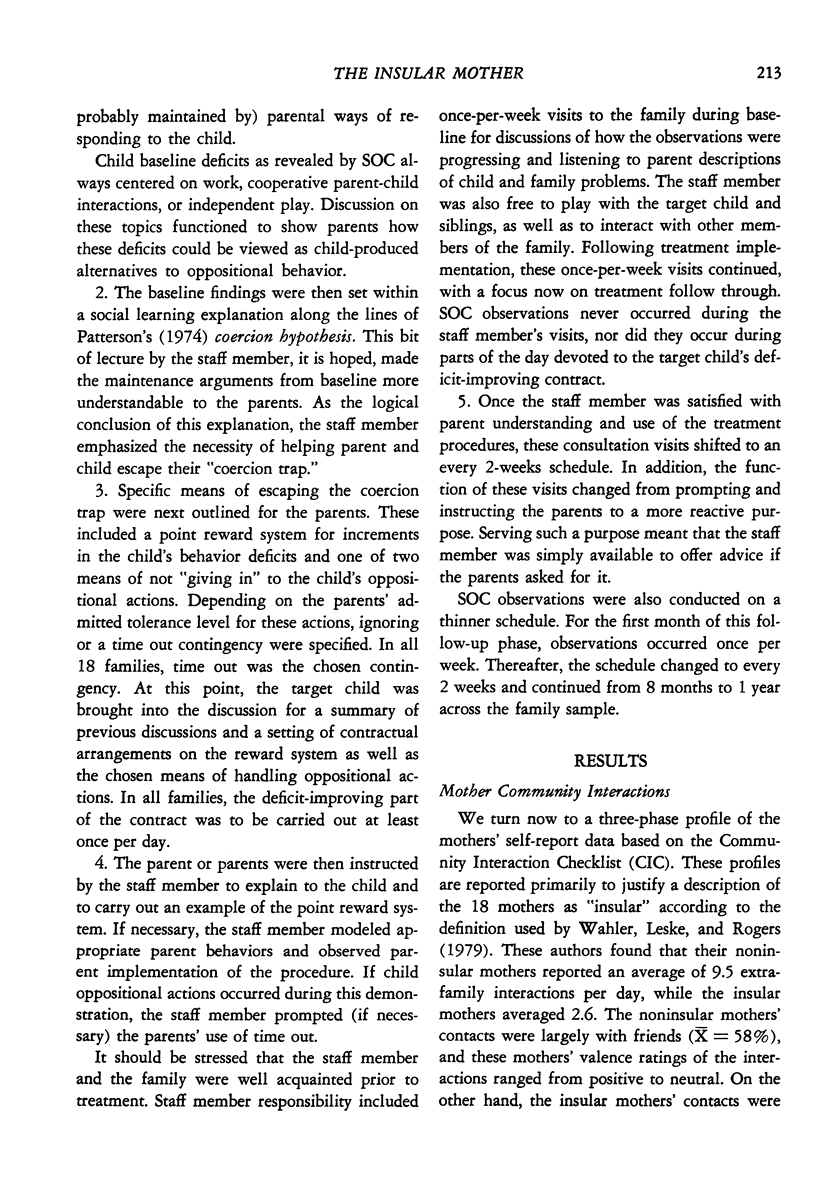
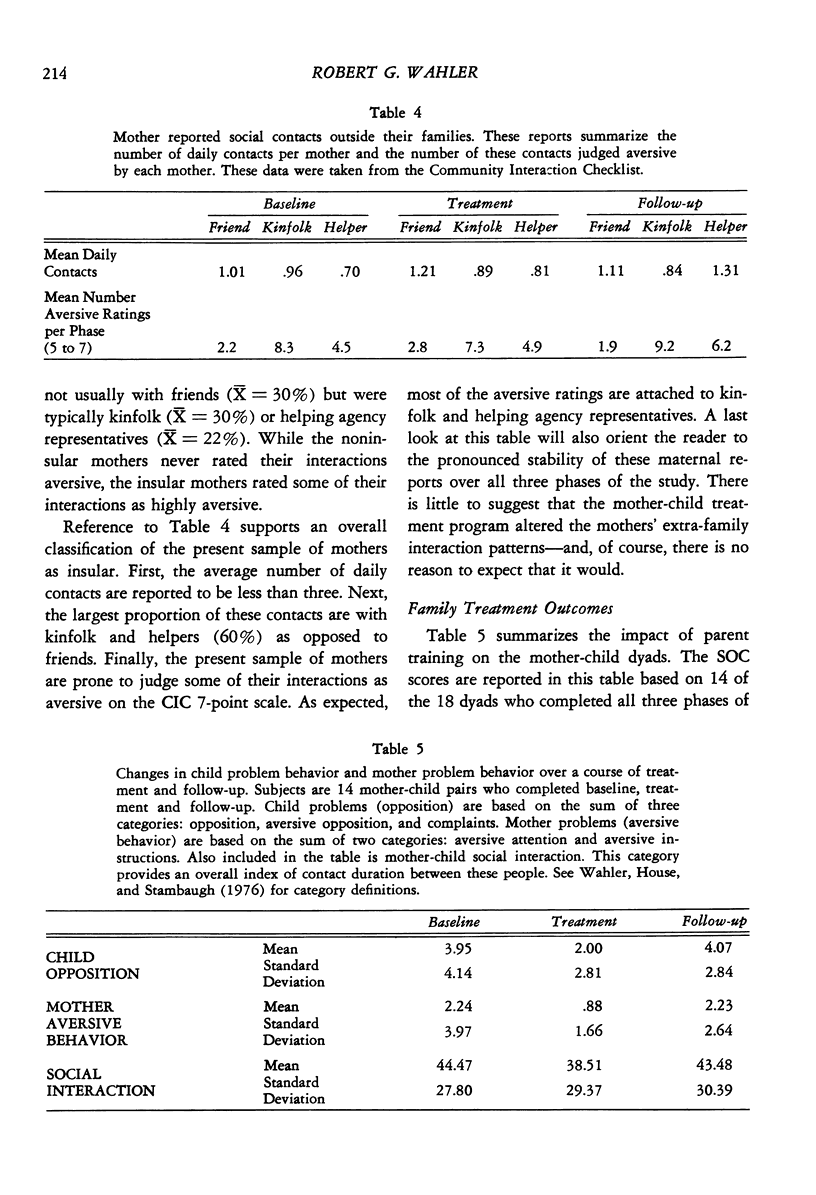
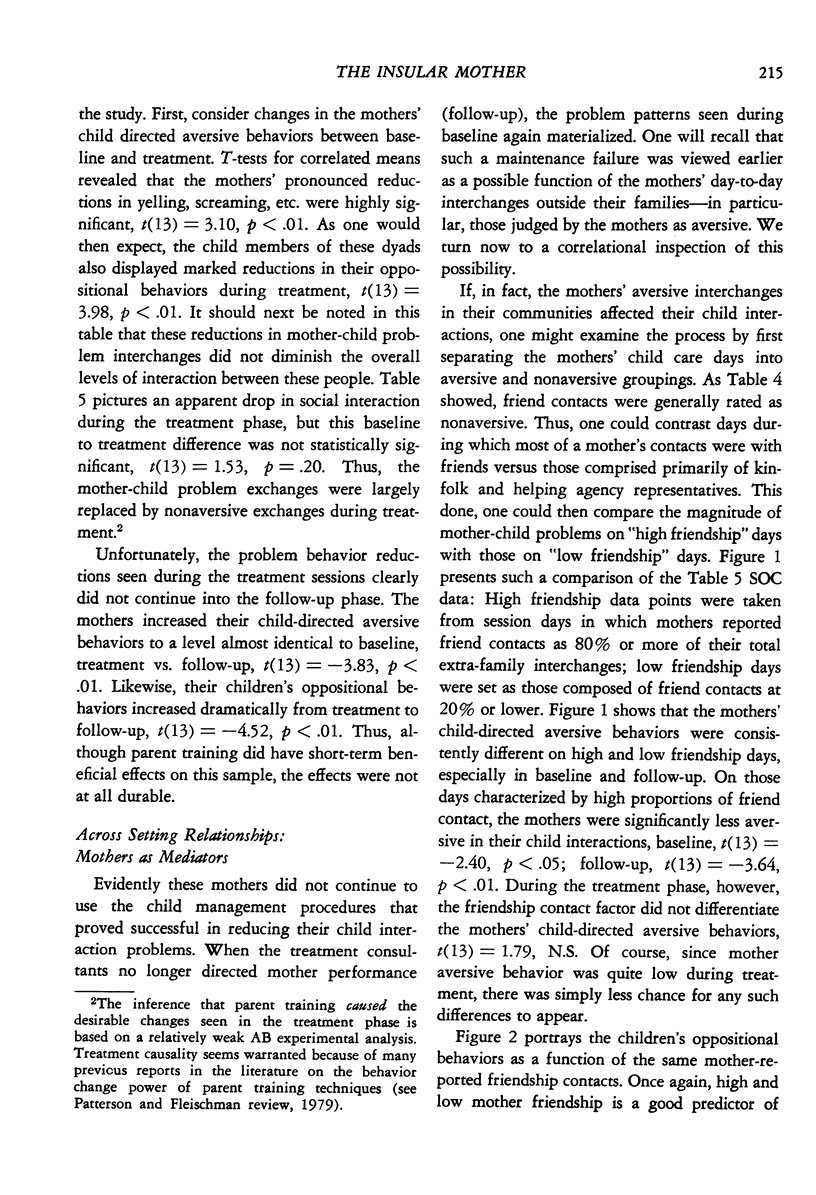
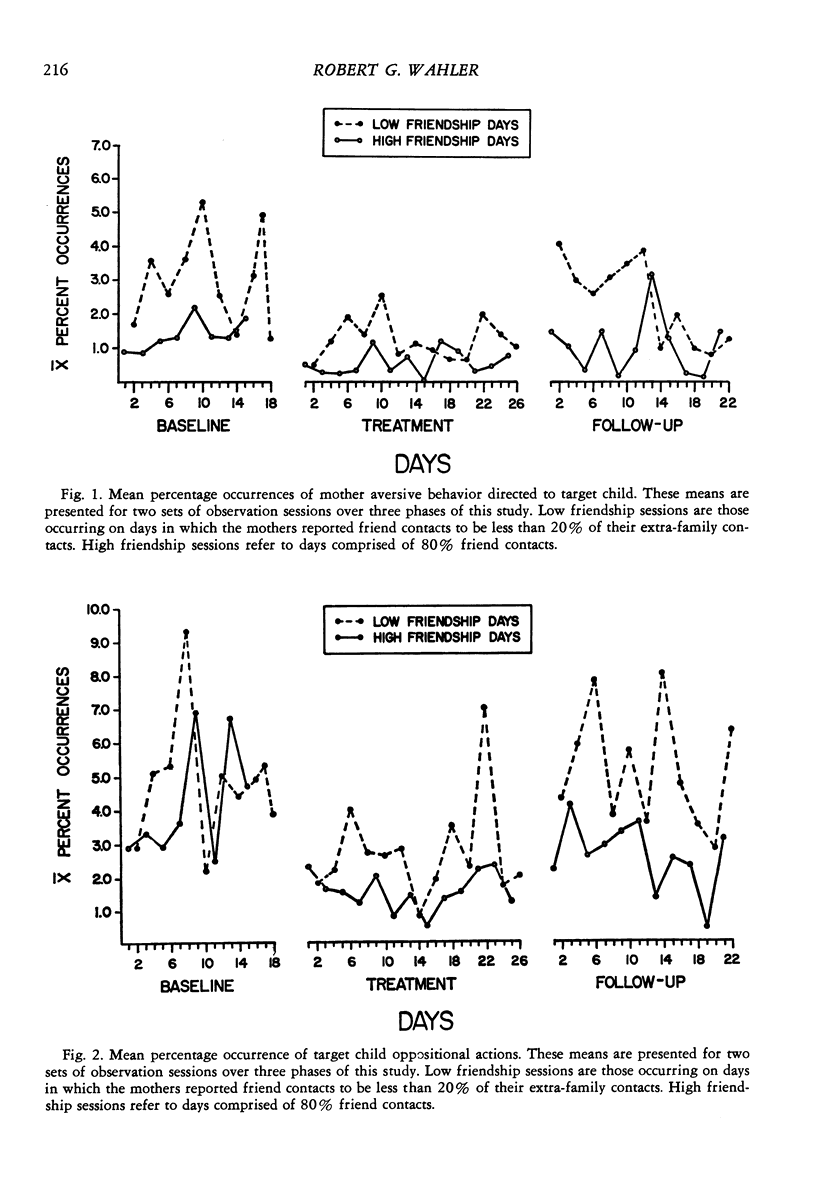
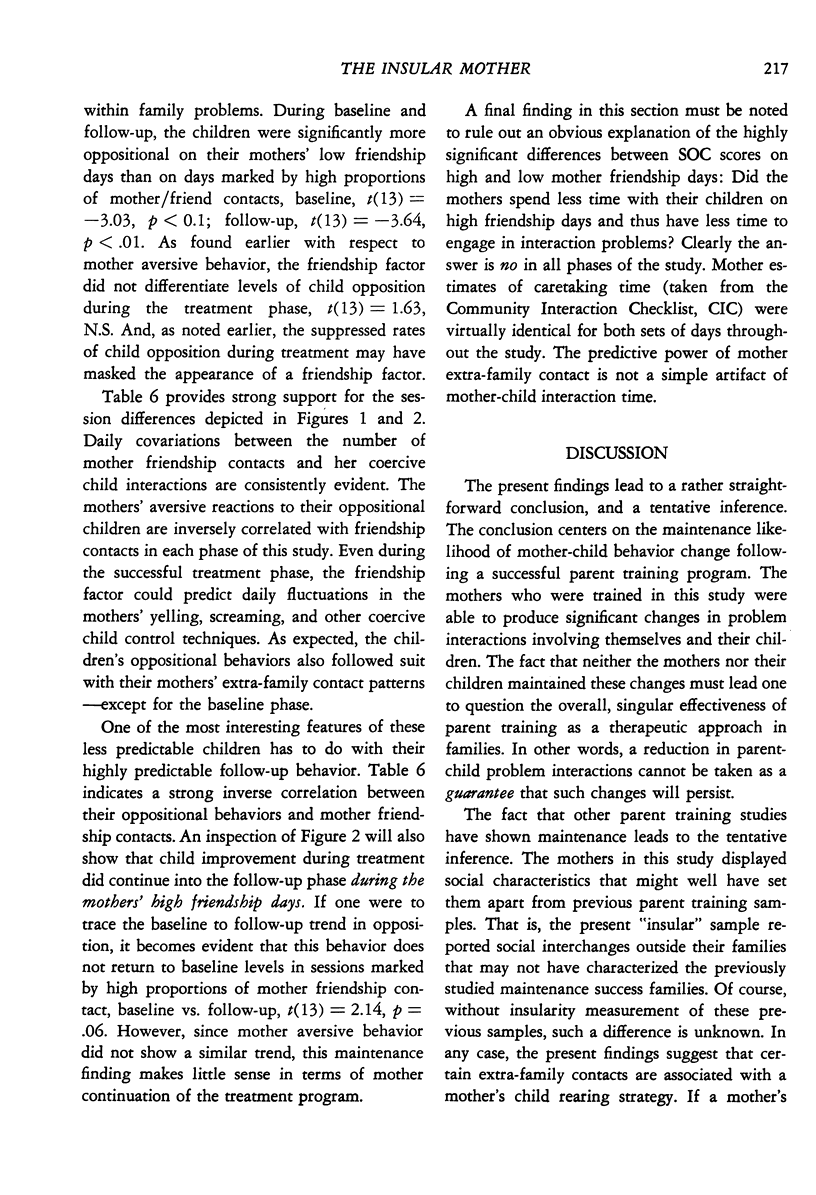
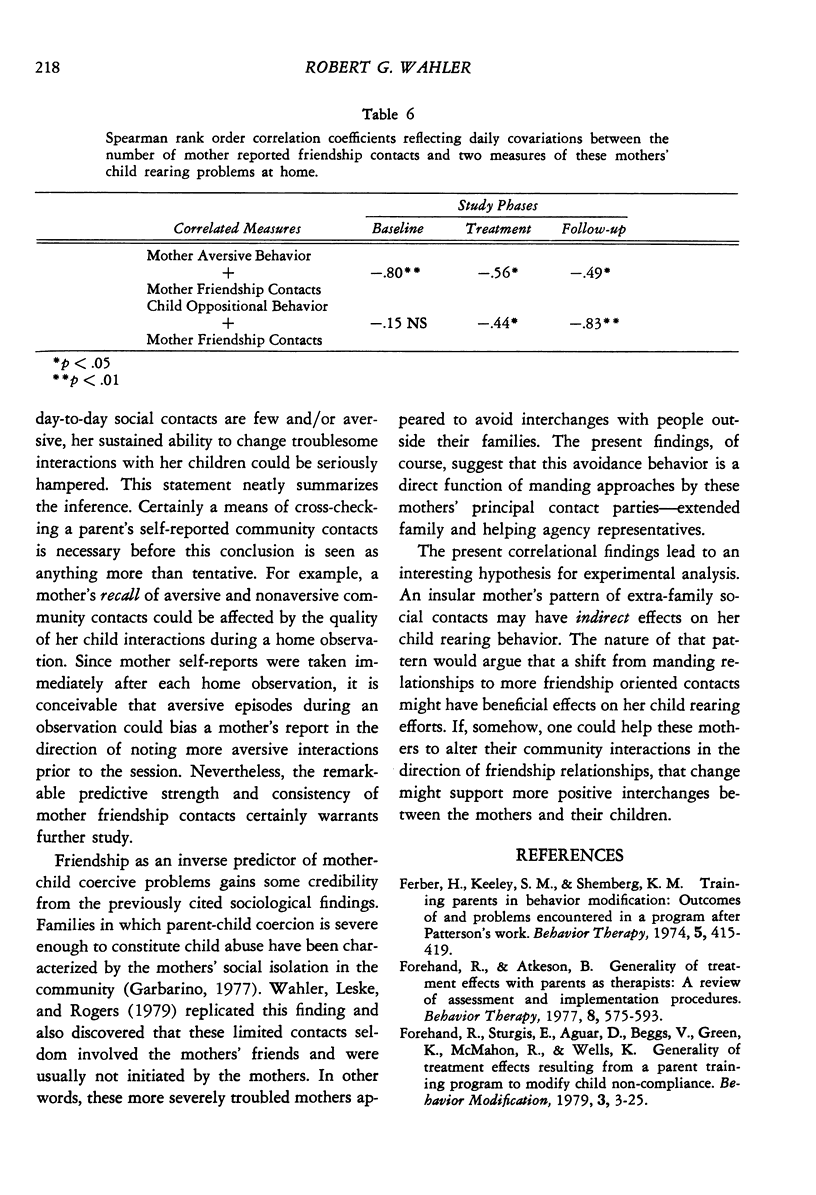
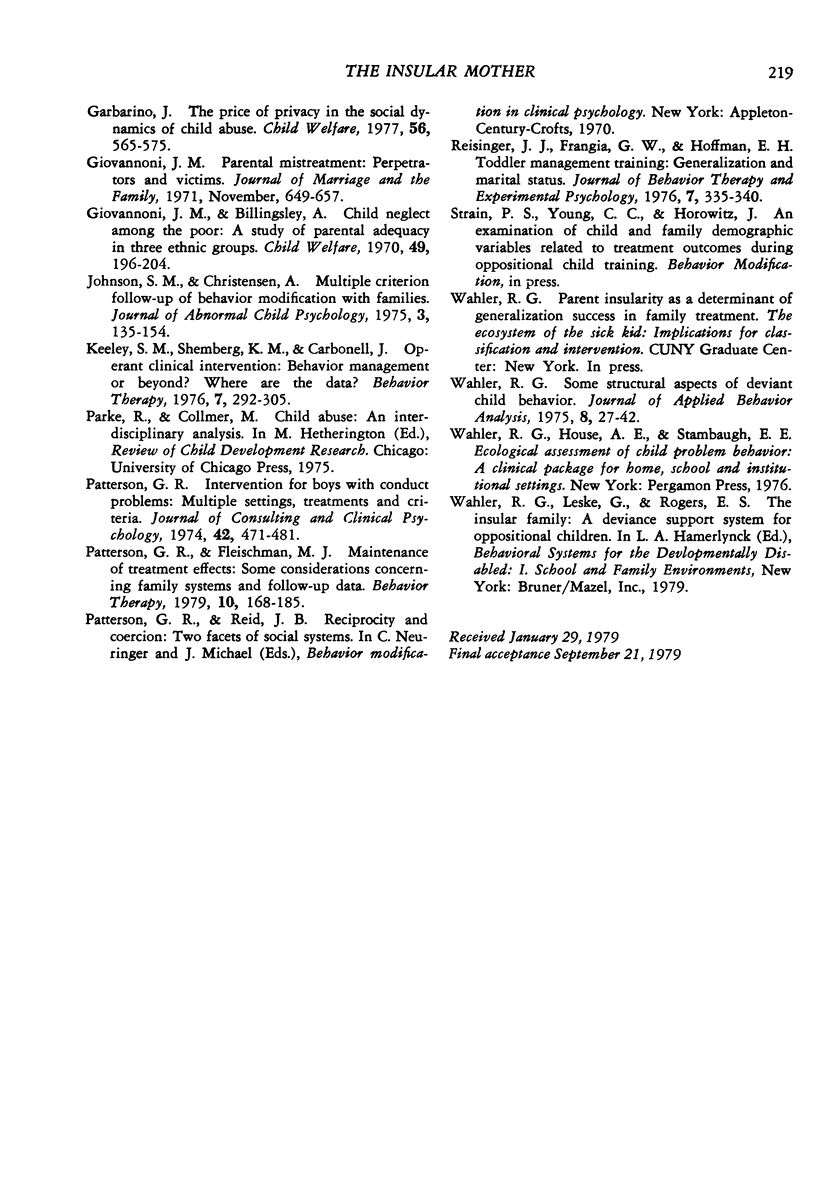
Selected References
These references are in PubMed. This may not be the complete list of references from this article.
- Garbarino J. The price of privacy in the social dynamics of child abuse. Child Welfare. 1977 Nov;56(9):565–575. [PubMed] [Google Scholar]
- Johnson S. M., Christensen A. Multiple criteria follow-up of behavior modification with families. J Abnorm Child Psychol. 1975;3(2):135–154. doi: 10.1007/BF00919807. [DOI] [PubMed] [Google Scholar]
- Patterson G. R. Interventions for boys with conduct problems: multiple settings, treatments, and criteria. J Consult Clin Psychol. 1974 Aug;42(4):471–481. doi: 10.1037/h0036731. [DOI] [PubMed] [Google Scholar]
- Wahler R. G. Some structural aspects of deviant child behavior. J Appl Behav Anal. 1975 Spring;8(1):27–42. doi: 10.1901/jaba.1975.8-27. [DOI] [PMC free article] [PubMed] [Google Scholar]


